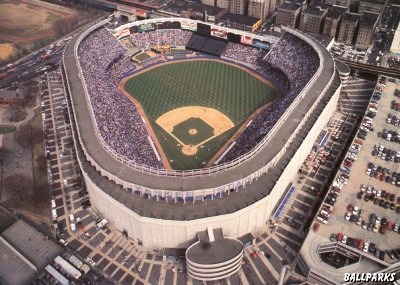Can somebody please explain to me who decides the order in which the BBWAA announces the winners of the different awards for the year? And more importantly, how they do it? I understand making the announcement about the Rookies of the Year for both leagues first and on the same day, as these are easily the least significant awards given out, and deserve the least hoopla (remember Bob Hamelin? Pat Listach? Mark McGuire?!! Ok, so Listach wasn't that bad.)
But how does the AL Cy Young, by itself, get sandwiched between the RoY and Manager of the Year Awards being announced together? And how did Esteban Loaiza finish such a distant second?
A much more significant controversy is the AL Rookie voting. KC Royals' SS Angel Berroa won the award by the narrowest of margins over Yankees' OF Hideki Matsui, 88 to 84 points. A lot of people have made a stink about Matsui's being left off the ballot by two sportswriters, but of course Angel Berroa was also left off two ballots, so essentially they’re on even ground, and it all seems to come out in the wash anyway.
However, Bill Ballou of the Worcester Telegram & Gazette and Jim Souhan of the Minneapolis Star Tribune took the law into their own hands, and that’s got to stop. We're not talking about Death Wish here. Nobody's life is ultimately going to be significantly affected by this, but the fact that there is so little accountability among these journalists, that nobody can do anything about the blatant and admitted disregard for the rules, is troubling.
These two sportswriters both admitted publicly that although Matsui technically qualifies for the award based upon MLB's rules for such, they didn't feel that he should be elligible, because of his vast experience playing in Japan.
Jim Souhan put it this way: "I just could not in good conscience pretend that Hideki Matsui, this great player from what I consider to be a major league, was on the same footing as a 22-year-old kid trying to learn to hit a major league curveball. I think it would be an insult to the Japanese league to pretend that experience didn't count."
Is not this exactly why you are wrong, Jim? You know neither the players nor the rules that govern them. First of all, Berroa's 25, not 22. Secondly, maybe this has already occurred to you by now, but NOBODY ASKED YOU WHO SHOULD QUALIFY as a rookie, they just asked you to rate the people who DO qualify. And to rate Matsui somewhere below one of the three best American League rookies for 2003 means that you’re either not very bright or just not paying attention.
Personally, I may consider the college I-AA Patriot League to be a major league, but MLB doesn't. So if someone comes out of Lehigh University, directly to the pros, and blows away the competition for a full year, he'll probably win the award, regardless of my opinion, because opinion should only matter when judging quality, not qualifications. That's why we have rules. That and to avoid traffic accidents.
Noted shipbuilder, multi-millionaire and Crusader for Justice, George M. Steinbrenner III, decried Souhan's and Ballou’s decisions.
“…I firmly believe that a great injustice has been done to Hideki Matsui. […]This year's voting farce, where the appropriate qualifications for the award were blatantly ignored, clearly demonstrates unfairness to first-year players from Japan. And that must be stopped."
OK, let’s get one thing straight: Steinbrenner is only concerned about justice so much as it serves his own purposes. You didn’t see him out there blasting the two writers who left Pedro Martinez (league-leading 2.07 ERA, 23 wins and 313 Ks) off their MVP ballots in 1999, when Ivan Rodriguez (24 walks, 25 steals essentially negated by getting caught 12 times) inexplicably won the trophy. But he’s not wrong about the “farce.” He’s just a little disingenuous.
And I wouldn’t say that there’s really any sort of general “unfairness” to Japanese players as a whole, since three of them have won the Rookie of the Year awards since 1995, and one of them even won an MVP (albeit one that should have gone to Jason Giambi). Hideo Nomo and Kaz Sasaki both pretty clearly blew away the rest of their competition in 1995 and 2000, respectively, but I would be curious to know whether or not Souhan or Ballou left them off their ballots at the time.
Souhan responded to George Steinbrenner’s criticism of his decision by saying, “When Mr. Steinbrenner spends multiple millions to lure an MVP-caliber player from a major professional league, he should be embarrassed that such a high-profile player is vying for the Rookie of the Year award, and not the American League MVP award."
Perhaps. But again, that’s not the issue at stake here. Sure, shelling out $21 million for someone like Matsui ought to net you something more than an approximation of the aging Tino Martinez, but that’s hardly the point. Hideki Matsui was a 3-time Japanese Pacific League MVP, a perennial ~.320 hitter with 35 to 40+ homers and 100 walks in Japan. Isn't the fact that he couldn't even hit .290 with 20 homers and 70 walks in the American League evidence that maybe the Japanese Pacific League is NOT a "major league"?
Sure, Ichiro made a pretty good transition, and maybe with a year under his belt, Matsui will settle in and start hitting like they expected him to, but maybe not. Maybe it's just easier to translate a slap-hitter's skills from one league to another than it is to become a power hitter in a league where the parks are bigger, the season is longer and the ball is thrown harder. Or maybe Jim Souhan is right and the rest of us are morons.





















 vs. Twinkies
vs. Twinkies 
 vs. Bostons
vs. Bostons
 vs. Cubs
vs. Cubs 
 vs. Giants
vs. Giants





